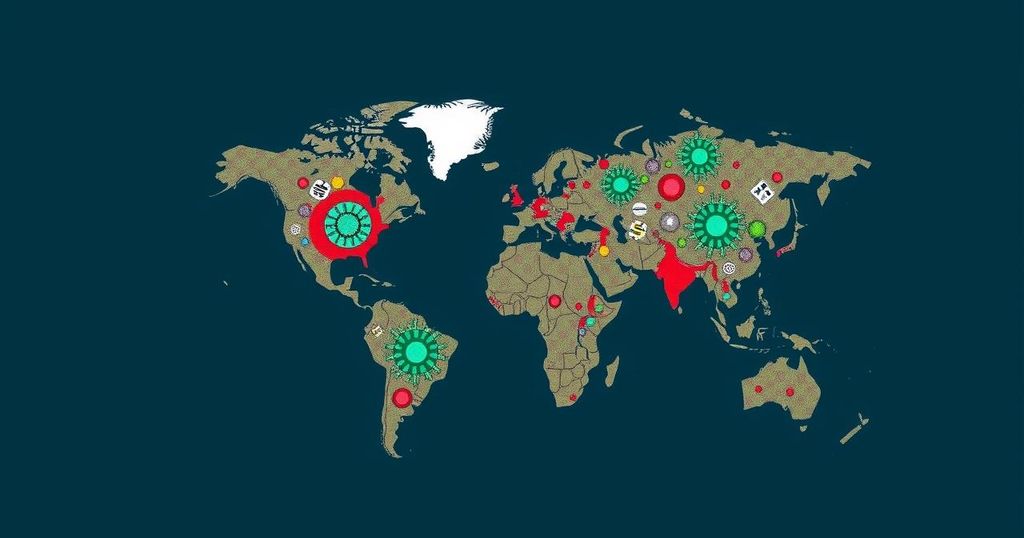Climate change
ANTONIO GUTERRES, ARMENIA, ASIA, AZERBAIJAN, CLIMATE CHANGE, CLIMATE JUSTICE, COLOMBIA, ENVIRONMENTAL POLICY, EU, EUROPE/ASIA, GOVERNMENT NEGOTIATIONS, INDIA, JOE BIDEN, PARIS AGREEMENT, PUBLIC RADIO OF, PUBLIC RADIO OF ARMENIA, SOUTH AMERICA, SUSTAINABLE DEVELOPMENT GOALS, UN, US, WO, WOPKE HOEKSTRA
Fatima Khan
0 Comments
Criticism of $300 Billion COP29 Climate Finance Deal Highlights Urgent Needs
The COP29 summit has resulted in a $300 billion annual financial commitment from wealthier nations to assist developing countries with climate change. This figure has drawn criticism for being inadequate, as poorer countries sought $1.3 trillion. While some leaders express cautious optimism regarding the deal, many advocates argue it is insufficient to meet the urgent climate needs of vulnerable populations.
At the recent COP29 summit held in Azerbaijan, a financial agreement aimed at assisting less-developed nations in combating climate change has faced significant criticism for its inadequacy. After prolonged negotiations, wealthier countries committed to providing $300 billion annually by 2035, a figure described by advocates as insufficient compared to the $1.3 trillion requested by poorer nations to effectively address their climate challenges. While some leaders express optimism regarding the agreement’s potential to sustain climate action, critics assert that it falls short of the urgent needs of the most vulnerable populations.
Several prominent figures shared their perspectives on the agreement’s implications. US President Joe Biden remarked that despite ongoing challenges, the outcome signifies a considerable advancement toward climate objectives. EU Climate Commissioner Wopke Hoekstra characterized COP29 as a pivotal moment in climate finance, emphasizing both ambition and realism in the new goals set forth. Conversely, UN Secretary General Antonio Guterres expressed disappointment that the agreement did not reflect the urgency required, though he acknowledged it as a foundational step for future developments in climate finance.
The COP29 summit is part of the ongoing global dialogue addressing the urgent challenges posed by climate change, particularly for developing nations. The discussions at this summit were crucial as they aimed to establish financial commitments that would enable poorer countries to implement effective climate mitigation and adaptation strategies. Historically, negotiations have often resulted in pledges that do not meet the needs articulated by developing nations, raising questions about the commitment of wealthier nations to support global climate initiatives.
In conclusion, the financial agreement reached at COP29 has been met with considerable discontent, particularly from representatives of less-developed countries who argue that it does not adequately address their needs. The commitment of $300 billion falls significantly short of the requested $1.3 trillion, leading to widespread criticism from various stakeholders. While some leaders remain hopeful that the agreement will foster progress in climate action, the overall sentiment underscores the persistent gap between fiscal commitments and the scale of climate challenges faced globally.
Original Source: en.armradio.am




Post Comment